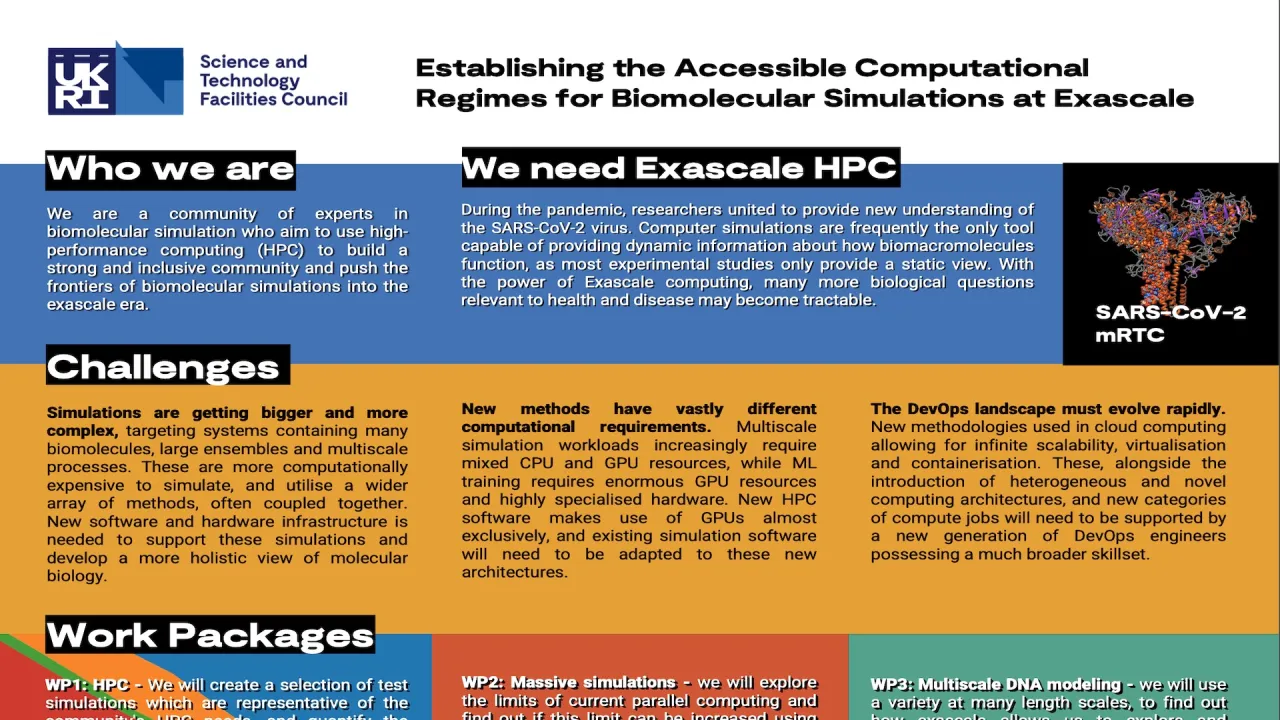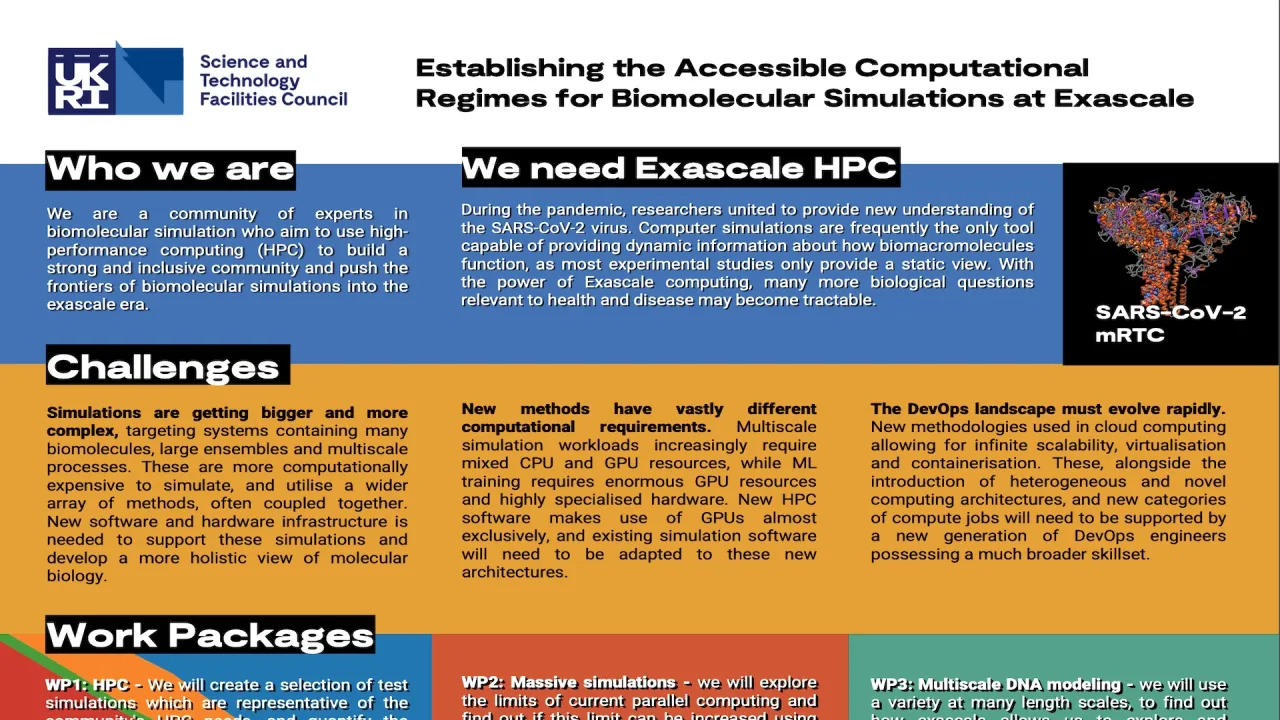

Establishing the Accessible Computational Regimes for Biomolecular Simulations at Exascale
Monday, May 13, 2024 3:00 PM to Wednesday, May 15, 2024 4:00 PM · 2 days 1 hr. (Europe/Berlin)
Foyer D-G - 2nd floor
Project Poster
Bioinformatics and Life SciencesChemistry and Materials ScienceExtreme-scale AlgorithmsPerformance Measurement
Information
Poster is on display.
The ExaBioSim (https://excalibur.ac.uk/projects/exabiosim/) community project is part of the ExCALIBUR UK research programme, and aims to establish the accessible computational regimes for biomolecular simulations at exascale. Computer simulations are frequently the only tool capable of providing dynamical information essential to understanding how biomacromolecules function. As we move into the exascale, the size and complexity of what we can simulate will greatly increase. These new systems will utilise a wider array of methods, including ML, code coupling and enhanced sampling, and a more diverse range of hardware, including GPUs and specialised ML SBCs. Next-generation HPC systems must also be run differently, incorporating virtualisation and containerisation, requiring a new generation of DevOps engineer with a broader set of technical skills. To address these problems, we are creating a selection of showcase simulations that are representative of the community's HPC needs. We are quantifying the performance, scaling and energy consumption of common simulation software, and using this information to help HPC users configure their simulations optimally. We will explore the spatial and temporal limits of current parallel computing and see if these limits can be increased using multiscale modelling and code coupling. We will use a variety of methods across different length scales to investigate how exascale computing can help us model DNA, and we will work to integrate cryo-EM structures into our existing simulation tools. Finally, we will explore the use of next-generation HPC systems for ensemble computing techniques, such as free energy perturbation for drug discovery.
Contributors:
The ExaBioSim (https://excalibur.ac.uk/projects/exabiosim/) community project is part of the ExCALIBUR UK research programme, and aims to establish the accessible computational regimes for biomolecular simulations at exascale. Computer simulations are frequently the only tool capable of providing dynamical information essential to understanding how biomacromolecules function. As we move into the exascale, the size and complexity of what we can simulate will greatly increase. These new systems will utilise a wider array of methods, including ML, code coupling and enhanced sampling, and a more diverse range of hardware, including GPUs and specialised ML SBCs. Next-generation HPC systems must also be run differently, incorporating virtualisation and containerisation, requiring a new generation of DevOps engineer with a broader set of technical skills. To address these problems, we are creating a selection of showcase simulations that are representative of the community's HPC needs. We are quantifying the performance, scaling and energy consumption of common simulation software, and using this information to help HPC users configure their simulations optimally. We will explore the spatial and temporal limits of current parallel computing and see if these limits can be increased using multiscale modelling and code coupling. We will use a variety of methods across different length scales to investigate how exascale computing can help us model DNA, and we will work to integrate cryo-EM structures into our existing simulation tools. Finally, we will explore the use of next-generation HPC systems for ensemble computing techniques, such as free energy perturbation for drug discovery.
Contributors:
Format
On-site

